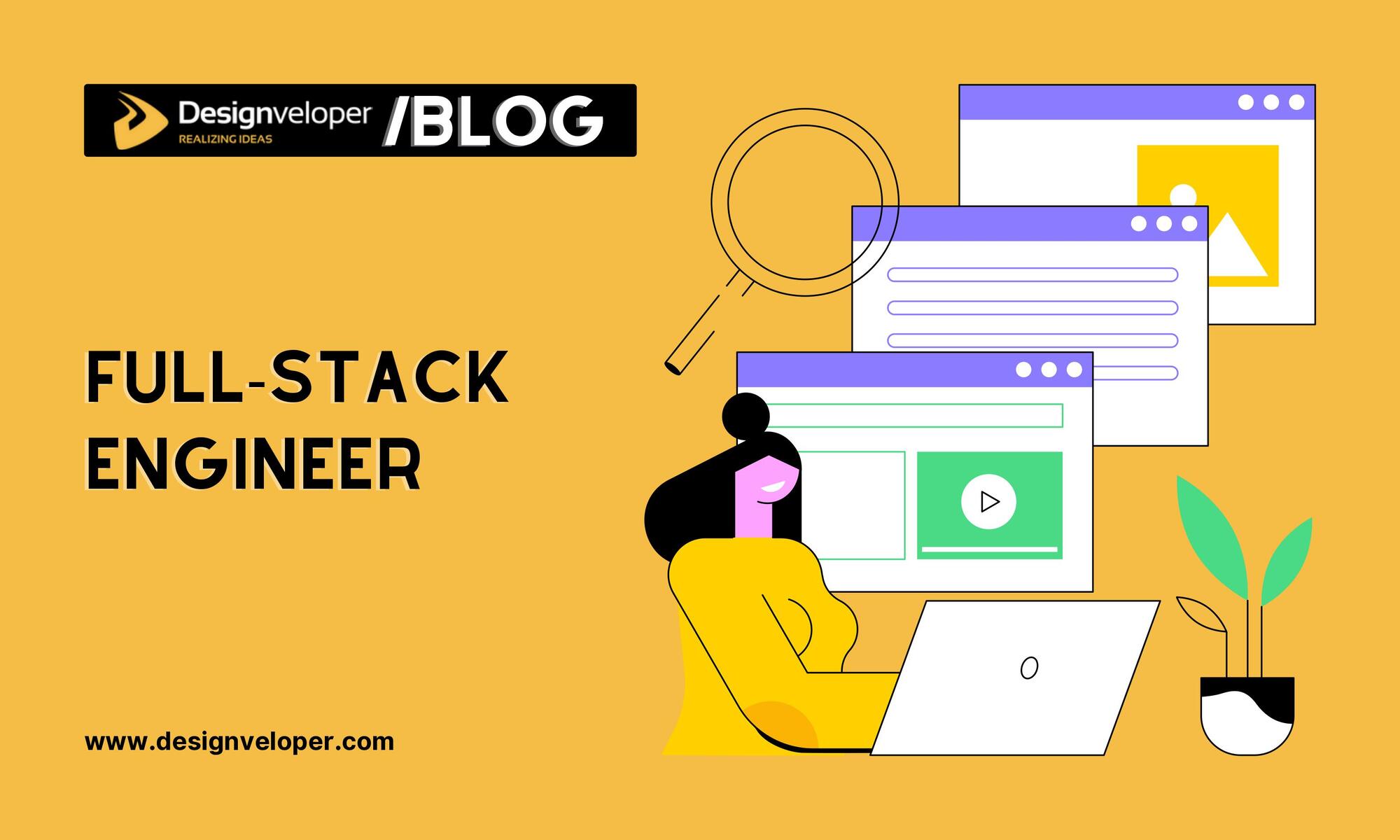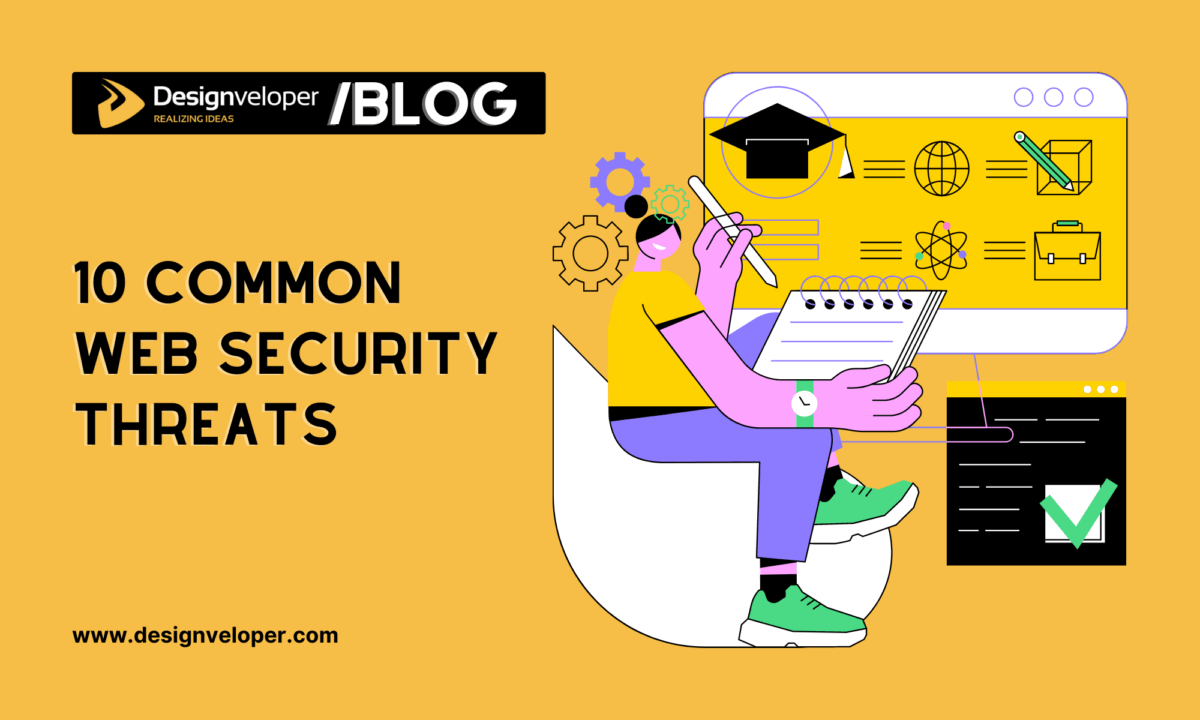
Full-stack is a word you must hear a lot in recent years. Hence, we must admit the truth that it is great if someone knows all about web development. According to a Stack Overflow survey, there are 60% of respondents consider themselves full-stack engineers. This index is just 48,2% in 2018, people are striving to become full-stack!
Like many skills, you gained as many benefits as you have. So now, what full-stack engineer really is in 2025? What’s making it so hot right now?
So First of All, What Is Full-Stack?
Nearly the word “full-stack” show everything about it. They engage themselves in end-to-end app development, from front-end to back-end, from DBMS to network security.
“Stack” refers to a collection of sub-modules. These software sub-modules or components combined to achieve the established function while without the need for other modules.”
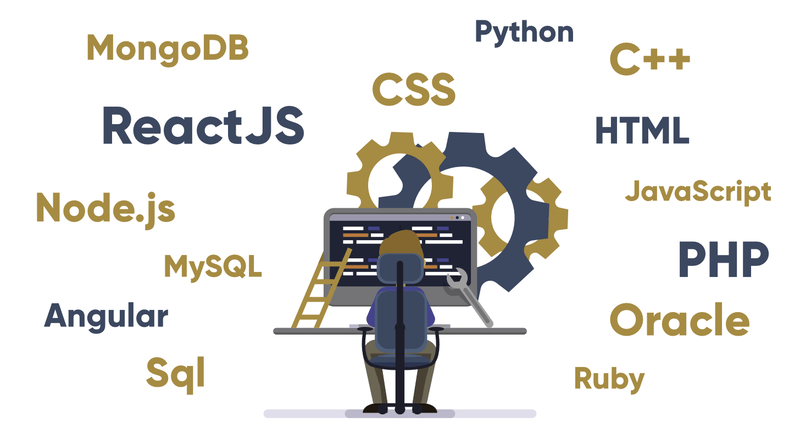
In fact, full-stack refers to the collection of a series of technologies needed to complete a project
For example, if clients assign a feature to a full-stack developer, he/she will do everything from taking customer requirements, UX/UI design, a database system for backend, writing API, and other stuff to make that app/ feature run smoothly with just a little help or coordination.
A truth is that you do not have to master all of those skills but you must understand and study quickly to apply them to the projects when needed.
Recommended reading: Hiring a Freelancer vs Agency for Software Development
Full-Stack Web Developer
A full-stack web developer is a person who can develop both client and server software. In addition to mastering HTML and CSS, he/she also knows how to:
- The program a browser (like using JavaScript, jQuery, Angular, or Vue)
- Program a server (like using PHP, ASP, Python, or Node)
- Program a database (like using SQL, SQLite, or MongoDB)
a. Advantages
The advantage of being a full-stack web developer is:
- You can master all the techniques involved in a development project.
- Make a prototype very rapidly.
- Provide help to all the team members.
- Reduce the cost of the project.
- Reduce the time used for team communication.
- You can better understand all aspects of new and upcoming technologies.
- Switch between front and back-end development based on requirements.
b. Disadvantages
- The solution chosen can be wrong for the project.
- The solution chosen can be dependent on developer skills.
- The solution can generate a key person risk.
- Being a full-stack developer is increasingly complex.
What Does a Full-Stack Developer Do?

As a full-stack developer, you may be involved in the following activities:
- Troubleshooting web applications with a fast and accurate resolution.
- Write backend code in Ruby, Python, Java, and PHP languages.
- Manage projects and coordinate with the Client.
- Monitor the performance of web applications & infrastructure.
- Create a test code to validate the application against client requirements.
- Writing optimized front-end code HTML and JavaScript.
- Understand, create and debug database-related queries.
- Translate user requirements into the overall architecture and implementation of new systems.
Full-Stack Developer skills
- Front-end technology
- Working with API (REST & SOAP)
- Development Languages
- Version control system (VCS)
- Database and cache
- Basic design ability
- Server
Why Become a Full-Stack Web Developer?
Given the choice to specialize in front-end or back-end development, why would any developer choose to learn the full spectrum?
In other words, one developer who can readily assess and communicate how a website should look, feel, and manipulate data while understanding the technical limitations of such implementations will be a respected and valuable member of any team or company.
You are more valuable to a team when you are able to address and discuss both aspects of the web development process and bridge the disconnect.
Full-stack Engineer Job Outlook
For those interested in technology and development, pursuing a career as a full-stack engineer is a forward-thinking choice. The job market for engineers, including full-stack developers, is expected to see significant growth in 2025. The Bureau of Labor Statistics projects a 4.0 percent growth in engineering employment, adding about 65,000 new jobs.
In terms of compensation, full-stack developers are highly sought after in the tech industry. With over 7,000 job openings in the US alone, full-stack engineers are in a strong position to command rewarding salaries.
How to Become a Full-Stack Engineer?

Becoming a full stack engineer requires a blend of education, skills, and practical experience. To start, one should gain a foundational understanding of both front-end and back-end technologies. This often begins with learning programming languages such as JavaScript for the front-end and Python or Java for the back-end. Aspiring full stack engineers should also become proficient in database management, which involves understanding SQL or NoSQL databases. To further enhance their skill set, aspiring full stack engineers should explore frameworks and libraries such as React for front-end development and Node.js for back-end.
Hands-on experience is crucial in this journey. Here are some steps and tips to guide you on this path:
1. Choose a Technology
Full-stack development comprises front-end, back-end, and database management. Choosing a technology on which you want to work depends on individuals, requirements, and applications. Some popular technologies include MERN (MongoDB, Express, React, NodeJS) and MEAN (MongoDB, Express, Angular, NodeJS).
2. Build Projects:
Practical experience is crucial. Try building your own projects or contributing to open-source projects. Beginners can also use platforms like Heroku, Netlify, or GitHub Pages for hosting their applications. Websites like Stack Overflow, GitHub, and freeCodeCamp are great for learning and community support. They offer a wealth of information, tutorials, and a chance to collaborate on open-source projects. These platforms are user-friendly and often have free tiers, which are perfect for small-scale projects.
Recommended reading: 10 Best Countries to Outsource Software Development in 2022
Is There Any Difference Between a Full-Stack Engineer and a Full-Stack Developer?
Well, yes and no. In most cases, it is a 2-different name for the same position. However, to recognize their effort, the in-depth knowledge, and the greater responsibilities of a developer, people call them “engineers”.
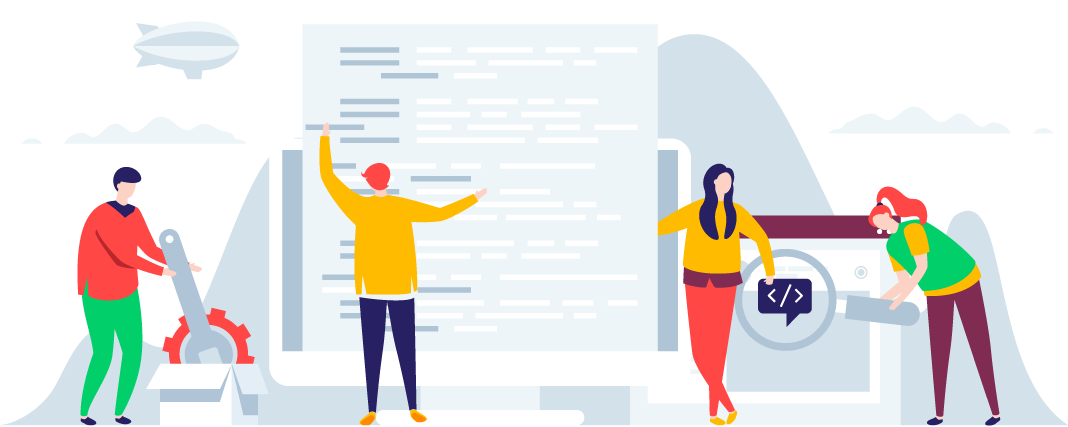
Undoubtedly, more than a full-stack developer, an engineer must know all about the architecture and design, they always looking at a “bigger picture” They may also act as a Project Manager or DevOps when needed. These things make full-stack engineers become a hard position to reach. As a result, people always find them very prestigious – a reference for every situation. Controversial, a full-stack developer is just someone who can code both backend and front end.
“A developer focus their talents often on a single area, a specific task, or within a specific environment, without looking at the “bigger picture”.
They do not care much about the architecture or database system which we sometimes call a “ code monkey”.
But somehow we must admit that the title is not a problem. You can change your title from developer to engineer without any complaint from other people as long as you deserve it. People just care about what can you do with your knowledge and experience. If you consider yourself a full-stack engineer then show them your skill. Do not let them down – let them beyond their expectations.
What Is the Difference Between Full-Stack Engineers and Other Software Engineers?
Distinguishing and understanding clearly the differences will help you find the right development team for your project.
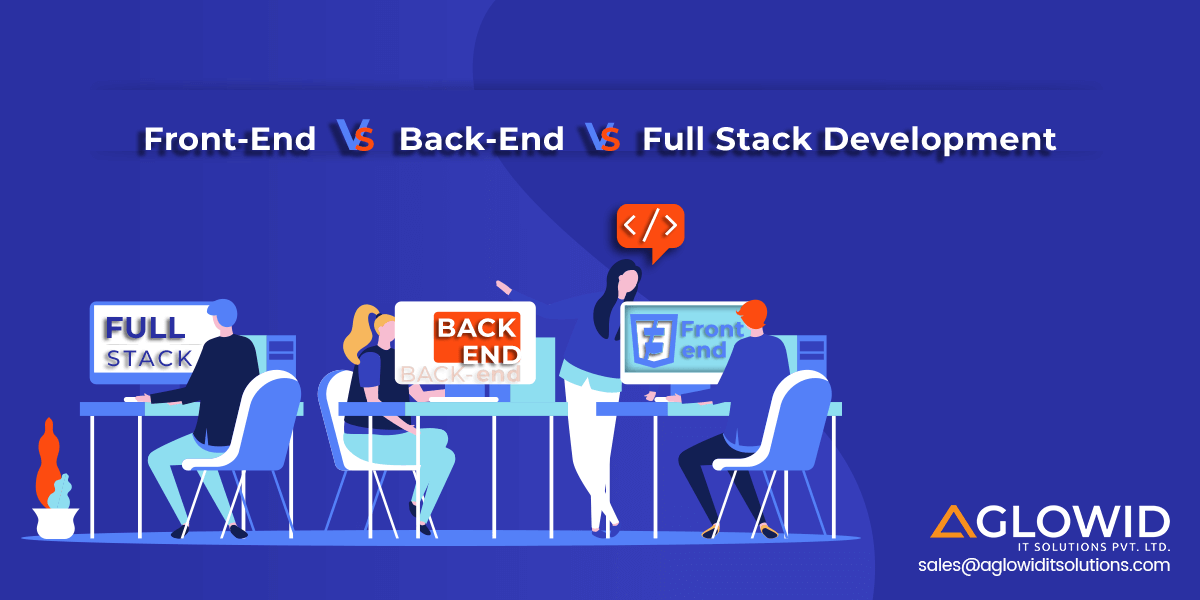
Let’s look at the below table:
| Front-end | Back-end | Full-stack | |
| Responsible for | Client-side | Sever-side | Both + other tasks to make the software complete |
| Programming Language | HTML/ CSS/ Javascript | A Server-side language: Python, PHP, C, Java, Golang… | Both |
| Goal | The website is accessible to all users, and it remains responsive in all views – mobile and desktop. | Make sure that the website opens up and is functioning properly. | To complete a whole application with full back-end and front-end and all functions customers may need. |
| Qualities | Visual aesthetic
Up-to-date knowledge of UX/UI sensibility |
Time management
IndependentDetail – orientationLogical thinking |
Analytical mind
PatienceLove for learning attention to detail Creative vision discipline |
Front-end and back-end development are the key components that maintain optimal system function in applications and websites. While full-stack is responsible for both client-side and server-side, front-end or back-end developer is in charge of a specific area. They obviously have absorbed an intensive knowledge of their expert.
Front-end developers are responsible for everything
You see it when you’re navigating around the Internet, from fonts and colors to dropdown menus and sliders. A front-end developer has a solid base of HTML/CSS, JavaScript, and its framework to support the task.(Bootstrap, jQuery, AngularJS, ReactJS, VueJS….). An awareness of UX/UI design or Photoshop skills is also competitive for their job.
Moreover, it is also important to have knowledge of Ajax or responsive UI design. Do you recognize that while you click on a menu on the Designveloper homepage, from white text color and black background they are highlighted with yellow text background? A front-end developer makes it!
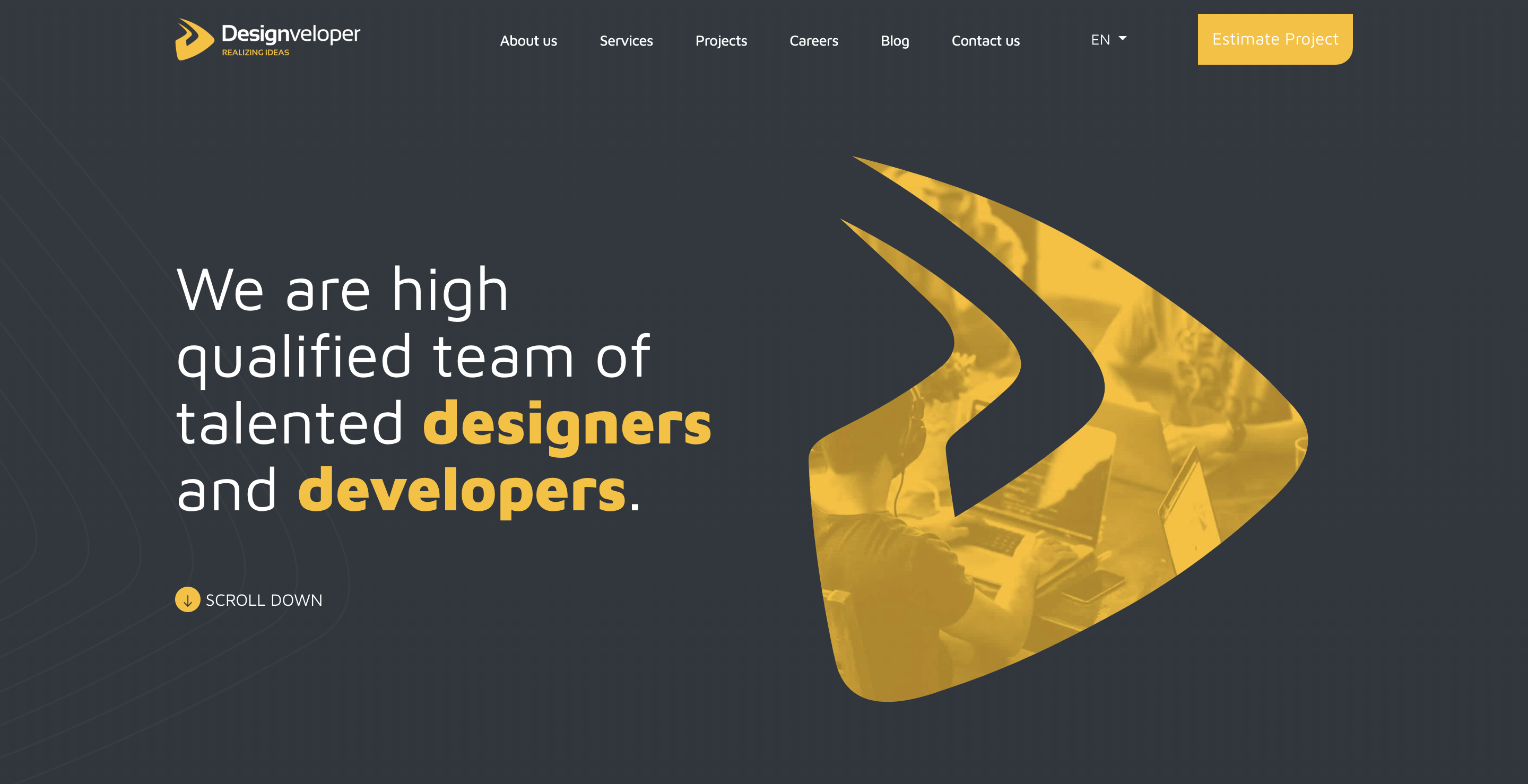
Back-end architects design and built the systems, data layers, and other services that support a website. Back-end development helps all the systems behind run fluently. Users can recognize a front-end developer’s work by looking at the app interface but not with the back-end.
Backend developer’s responsibilities
A Backend developer must know at least one server-side programming language like Java, Python Golang, Ruby on Rails, and related frameworks to support the tasks.
According to TopDev (an IT recruit agency in Vietnam) latest Vietnam Developer Report, JavaScript and Java are the most famous programming language in 2022 due to their widespread.
Besides programming language, the Backend Developer must master Database SQL like MySQL or NoSQL, web service, and API (REST & SOAP). Some Backend developers even have the ability to write unit tests, awareness of security concerns, and knowledge of algorithms.
One quality of a backend developer is logical thinking as they have to build the whole system to support the front-end. For example, when the front-end requires a registration function, a back-end developer has to calculate all steps to build that function and all problems may cause to assure no error is found.
In fact, some freshers first start their career as front-end developers, then back-end. After mastering the back-end, they can become full-stack engineers with a higher position. While the back-end is very difficult to learn with enormous knowledge, the front-end is a rational start.
Full-stack as we discuss above, is the combination of both back-end and front-end. A full-stack engineer act as a back-end on the server-side but also master the front-end languages to control the content on the web interface. The skillset required to become a full-stack engineer is front-end technology, programming languages, database, basic design ability, server, and working with API and version control systems.
FURTHER READING: |
1. The 8 Best Full Stack Developer Courses With Certificates |
2. Who Is a Full Stack Developer? A Detailed Guide |
3. How to Become a Full Stack Developer? Does It Suit You? |
Why Enterprises Should Outsource Full-Stack Development in Vietnam?
As we discussed so far, Vietnam is the new dreamland for outsourcing, but why full-stack development service?
First of all, Vietnam has a large amount of available full-stack developers accounting for 47,3% of the whole industry. As a consequence, you can find the best team that fits your project. Many national companies provide a consulting and full-stack development service that is suitable for every requirement. Another plus point is that you can have a full set of skillful engineers, aesthetic design, and available resources for just a rationale price.
More Than That,
the talent and knowledge of a full-stack engineer are undeniable. Hence, right from the start, they can show a comprehensive view with many valuable reviews of the project. For example, they can show you this function does not meet your requirements and find you a better solution instead. They also know about all the components, and how they interact with each other in the development process and then combine them into a complete product.
Recommended reading: How Much Does Google Pay Their Software Engineers?
Last but Not Least,
They will definitely help you save all the resources inside as they are so versatile. With their flexibility, they can be responsible for any position in the development process. A full-stack engineer is suitable for startups and small enterprises who just need to build an MVP with a limited budget or a big project that needs cohesion and has a communication channel among their teams about their codebase.
But to be fair, if the systems get more and more complex, the full-stack developers will reveal weaknesses, they can hardly control the entire stack anymore. Now we will need experts for each component. There are a lot of common mistakes when you think that if you hire a full-stack developer you won’t need to hire another team.
Why Choose Outsourcing Service At Designveloper?
At Designveloper (DSV), we maintain a team of experienced full-stack engineers and developers who are experts in a wide range of technology stacks for both web and app development. Our team, comprised of experienced developers proficient in a wide range of tech stacks, is dedicated to meeting our clients’ diverse needs.
Complementing our technical expertise, we have a dynamic and creative UI/UX design team that excels in crafting products with unique and engaging interfaces. Additionally, our certifications in SCRUM project management, including Professional SCRUM Master and Professional SCRUM Product Owner, enhance our capability to manage custom web development projects effectively. Our team works tirelessly to help you achieve your digital goals at a lower cost. From manufacturing and healthcare to logistics and transportation, we have a wide range of experience and expertise. Got an idea that needs help executing? Drop us a line today.
Just imagine that having a person who has a comprehensive understanding of the components, combining them, then working with each expert in each section to be able to deliver the perfect product is an extremely important task. And that’s where the full-stack developer role is most clearly expressed.






Read more topics




























